The usually quiet police station of Kumbalgodu, located on the outskirts of Bengaluru enroute to Mysuru, saw some unusual activity a few weeks ago. A group of about 50 residents of the neighbourhood had landed up to file a complaint.
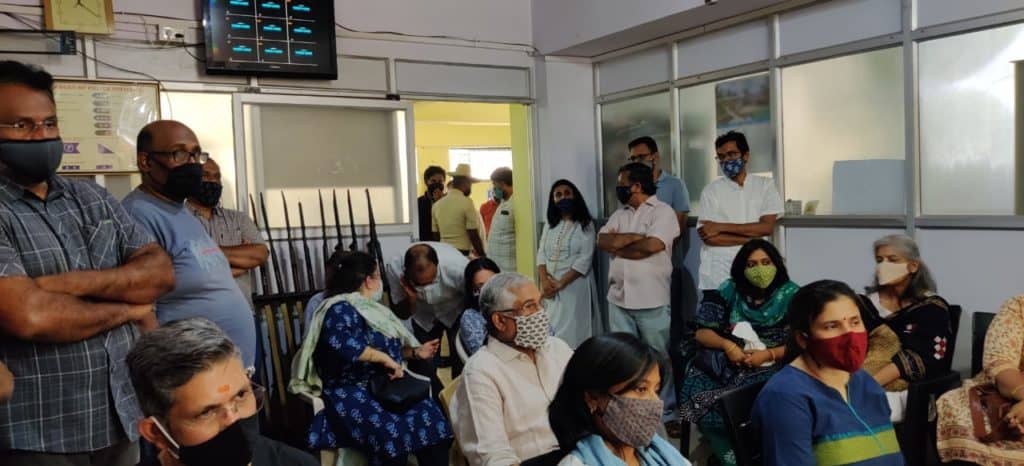
The trigger was a major fire that had broken out on the banks of the nearby Vrishabhavathi river and which had spread dangerously close to their homes. This was just the most recent in a series of fires that have been noticed on the river’s banks over the past year.
Sources say the fires are being lit by contractors who use the abandoned banks of the river to illegally burn plastic and other waste. Needless to say, the toxins emitted by this activity are extremely dangerous to nearby animal and human life. In addition to the rampant plastic and garbage burning, untreated industrial effluents are routinely let out into the Vrishabhavathi river.
Read more: Toxic heavy metals in Bengaluru’s air, finds study
People get to know of this nefarious activity that takes place at night or in the wee hours of the morning, courtesy the foul stench of burning plastic or chemicals that permeates the air. This is accompanied by residents complaining of difficulty in breathing and of their eyes stinging.
However, in the early evening of Monday, 22nd March, there was literally ash raining down on the homes and trees. Frightened children wondered why black particles were falling on them, in their playground. A fire lit on the banks of the river had reached their compound wall. Alert residents called the fire brigade in time and a major disaster was averted.
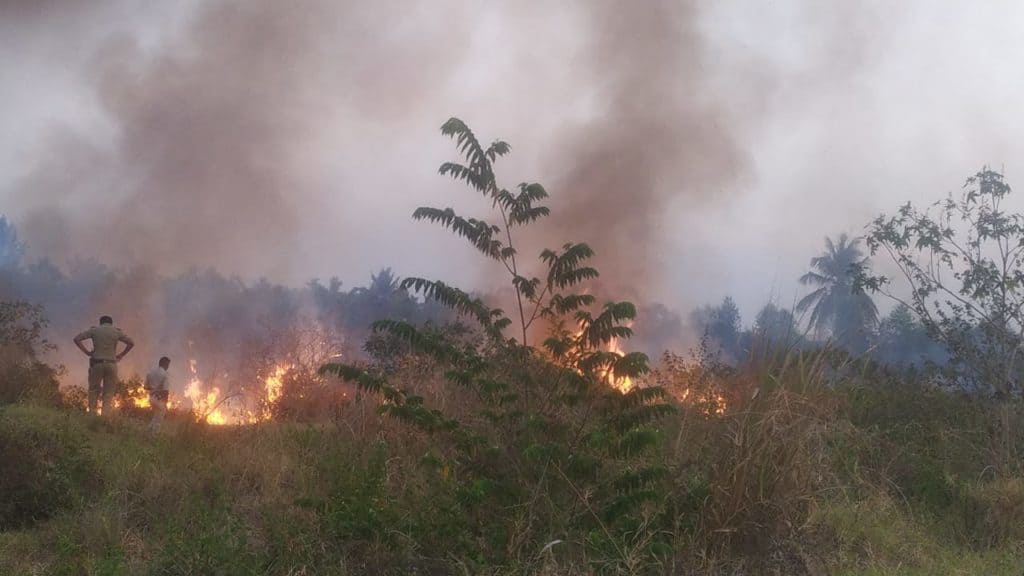
Ongoing issue
Residents claim that despite keeping a constant vigil and maintaining pressure on the Pollution Control Board, Zilla Panchayat and Police, there has been very little improvement on the ground in terms of controlling the pollution. Hence, this time, they decided to land up in large numbers at the police station, hoping to get some response from the authorities. They waited in the hot sun for close to two hours for the local police authorities to land up and while the residents weren’t able to file an FIR, they did succeed in raising a firm police complaint with a formal acknowledgement of the same.
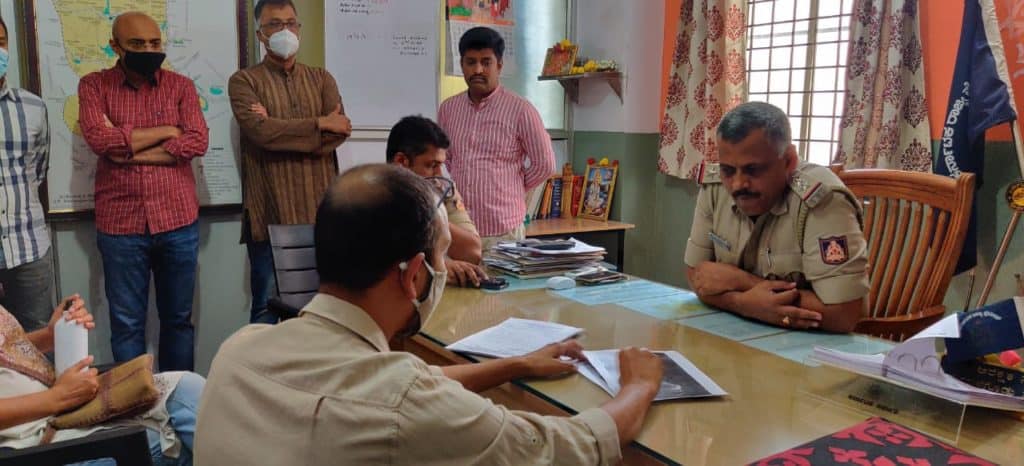
Police Inspector Vijaykumar committed to facilitating a meeting with all stakeholders in the following weeks. He explained that while he could record the residents’ complaint as a grievance, he couldn’t take action based on the complaint unless the Panchayat engaged on this directly and issued him orders accordingly. He even pulled out a bunch of petitions put forth by residents of the community around not just illegal fire burning but also illegal dumping of untreated effluents into the Vrishabhavathi river by unscrupulous industries. The burning of unwanted material on the banks of the Vrishabhavathi appears to be just an extension of the ongoing illegal dumping of untreated effluents into the river. The folder of complaints filed with the Police over the past few years indicates that the illegal issues that happen at the Vrishabhavathi river are neither new nor unknown. Any headway, if at all, over the past few years has been slow and that is what is concerning.
Impact on the ecosystem
The area is home to diverse urban wild life. Chayant Gonsalves, an ecologist and a wildlife expert who is a resident of Kumbalgodu says, “Our group of resident nature-lovers have observed about 130 species of birds and 20 species of snakes, several mammals such as civets and elephants, and other fascinating wildlife in the neighbourhood in the last few years. Some of these animals are highly dependent on specific types of habitats for their survival, such as freshwater ecosystems and the dense surrounding vegetation.”
Elephant recorded in September 2020
Gonsalves adds, “Garbage dumping and uncontrolled burning introduce novel toxins into these ecosystems, compromising delicate food webs. Fires in particular cause immense habitat destruction when they spread to neighbouring areas, with nesting birds and smaller animals being particularly vulnerable due to their inability to escape. In order to safeguard the ecological integrity of this landscape, appropriate garbage disposal and rejuvenation of freshwater habitats is of paramount importance.”


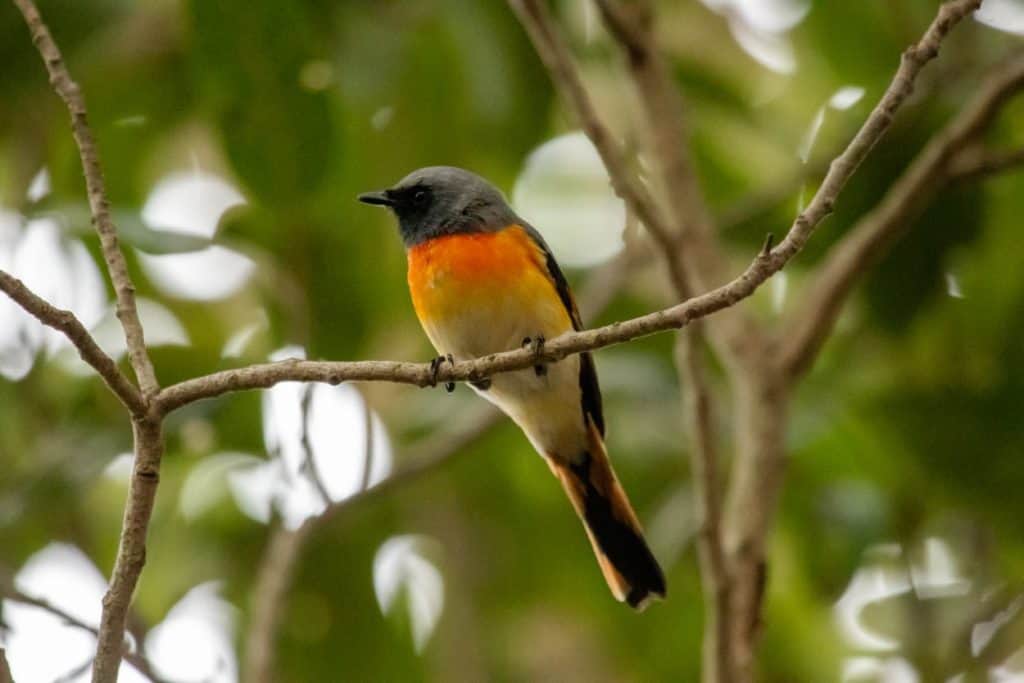
Sangeetha Kadur, a wildlife artist who lives in the area says, “The toxic fumes released into the atmosphere and waste dumped into the rivers are super harmful for natural life to fight and persist. We cannot forget that this environment is home to not just us humans, but wildlife as well. We need to learn to fix the waste problems at the source and learn to coexist and live in harmony with nature.”
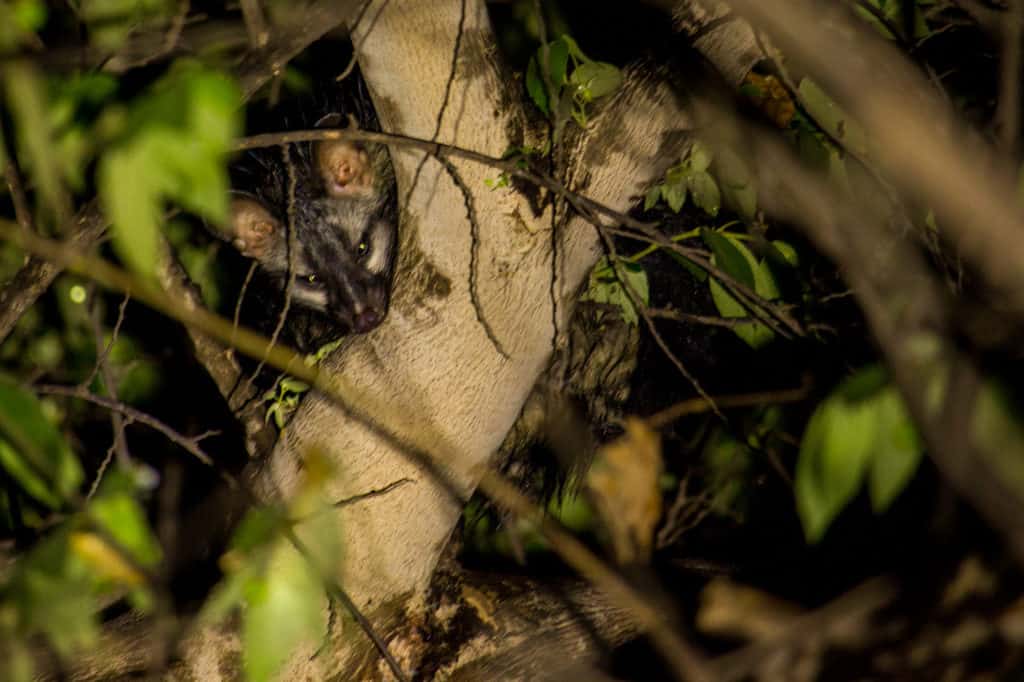
Plans and promises
After the meeting in March, the residents have had two follow-up meetings with the local Panchayat and Police in April. The community task force comprising of resident volunteers has taken it upon themselves to drive these meetings, pro-actively recording all minutes of the meetings for follow-ups. The fact that despite COVID fears, residents continue to show up for meetings, highlights the seriousness of the issue at hand. At the last couple of meetings, the local officials agreed to a few concrete steps:
- The Panchayat will handle a series of local community interventions including announcements on loudspeakers in the local village to stop burning on the banks of the river.
- The Panchayat also said they would issue public notices to the owners of the individual plots where fires happen, against illegal burning on their land. They also agreed to shut down illegal units and to issue licenses to factories based on inspection.
- In the mean time, the Police and Panchayat said they would create check-posts and install CCTV cameras at three critical areas in the neighbourhood, to curb unauthorised dumping of waste.
The task force is hoping to see results of the actions committed to in the following weeks and the next meeting with officials is now scheduled sometime in May.
The residents are aware that the battle has only just begun. They’re fighting not only unscrupulous contractors and persons who have vested interests in maintaining the status quo, but also a convoluted and bureaucratic system. They realise that if they do not take matters into their own hands, they and their families will ultimately bear the consequences.
As, Nikhil Tiwari one of the community task force members says, “the Right to Life under Article 21 gives us a right to a life of dignity, to live in a proper environment, free from the dangers of disease and infection. We are not activists, we are just common people, asking for our basic right to a clean environment and we refuse to breathe this poison every night.”
Thank you, Jaissy John, and all the residents who contributed to this awareness-raising story! Hope all concerned can work together to keep our environs healthy and safe.
Urge concerned authorities to take appropriate actions at the earliest.
Thank you for this story. Let’s hope it builds towards some corrective action that will conserve our precious environment.